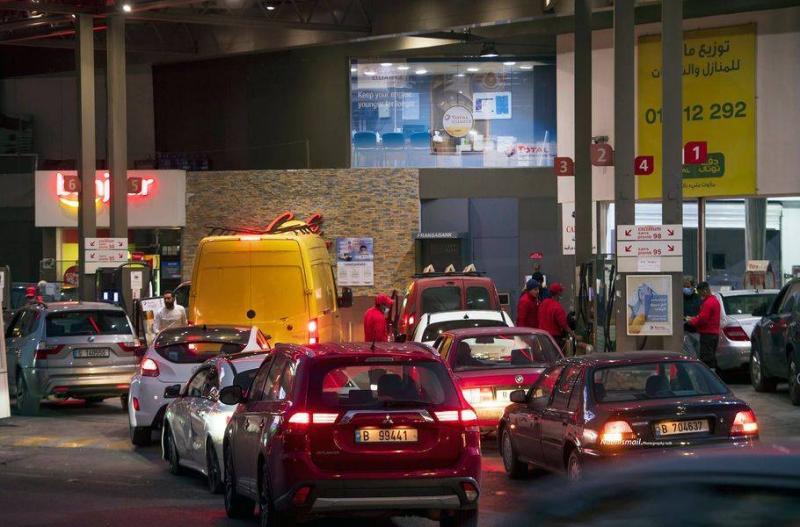The electronic newspaper Al-Anbaa reported that as the country enters the atmosphere of parliamentary elections, and just a few days before the deadline for submitting candidacy applications on the 15th of this month, the signs of a serious economic and living crisis are emerging, reminiscent of the difficult days experienced by the Lebanese in the past two years. This crisis is visible through scenes of queues in front of gas stations, banks, and food aid centers, ostensibly resulting from the negative repercussions of the Ukrainian war and the skyrocketing prices of oil, wheat, oils, and other essential goods that Lebanon has been directly affected by.
However, the reality confirms that the impact of the crisis is not reflective of what has occurred in recent days, which has been attributed to the greed of some traders and the monopoly that reappears with every emerging crisis. This warns of an even tougher crisis if the state does not move simultaneously on two fronts: first, finding alternatives to Ukrainian markets to secure basic needs; and second, taking severe action to put an end to the traders and companies violating regulations that exploit the crisis for profit.
In a related vein, independent bloc member, MP Ali Darwish, revealed to Al-Anbaa that a meeting dedicated to food security had been held, attended by Prime Minister Najib Mikati and the concerned ministers and officials responsible for securing citizens' essential needs. During this meeting, all measures were taken to secure other import sources within a short period to avert the crisis. He expected the implementation of the financial aid card to begin soon after the Ministry of Social Affairs completes the verification process for the beneficiaries and those deserving of this assistance.
On the other hand, financial and economic expert Antoine Farah indicated that the Russian-Ukrainian war will have very negative repercussions on the economic and financial levels in all countries, but it is certain that weak and poor countries will be the most affected, including Lebanon. In a statement to Al-Anbaa, Farah said, “I say this with a clear conscience, Lebanon will be at the bottom of the ladder and one of the most affected countries, because we do not have a state or officials thinking about how to face the crisis.” He added, “We heard before the war that the Ministry of Economy had a plan to confront the crisis, only to find out later that it had nothing. The state does not have financial capabilities, and the modest resources available in the Central Bank of Lebanon, originating from the depositors' funds, have also become scarce, resulting in significant losses due to the support of the lira.”
Farah predicted a major increase in the prices of wheat, oil, and petroleum, which could affect the entire production chain worldwide, including Lebanon, thus rendering the state incapable of taking effective measures. He noted that citizens can no longer endure further economic burdens, as conditions are worsening. He reflected, “Imagine if the price of a fuel canister reaches 500,000 or 600,000 lira, would the dollar still be at 20,000 lira? It will certainly rise further, and if the Central Bank completely stops supporting the lira, the catastrophe will be even greater. With the repercussions of this war, Lebanon's situation will be very difficult unless a miracle occurs, and we have leaders who know how to tackle such a crisis.”
Regarding the emerging fuel crisis, Fadi Abu Shakra, a representative of the Importers Union for Petroleum Products, attributed the issue to delays in unloading ships and the lack of a price schedule, promising a resolution within 48 hours. He disclosed to Al-Anbaa that Prime Minister Mikati has intervened to address this matter, suggesting that queues would not return. Abu Shakra praised Mikati's intervention and concern to prevent a fuel crisis. When asked about expected prices in the coming days, he indicated that this matter falls under the jurisdiction of the Minister of Energy, and the price schedule issued by the index committee. Will Lebanon face a fuel crisis and a return to queues of humiliation? What is the truth behind companies demanding price increases to deliver fuel? These are questions that the relevant parties need to answer as soon as possible.




